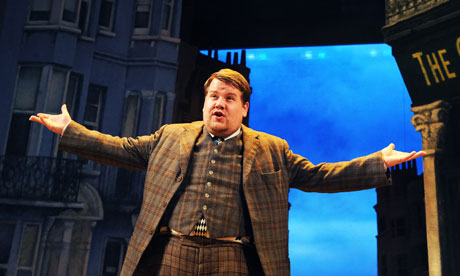
The year began and now ends with an odd little movie, showing an unusual approach to dialogue, becoming an improbable smash. Released in January, The King's Speech, which struggled to be funded and then to be filmed, conjured a global box office triumph and four-Oscar haul from the story of a character who could barely speak. Going even further, The Artist, coming out at the end of this month, seems likely to repeat the feat with characters who never talk at all.
This cinematic neatness is more than coincidence. It's a shibboleth of recessions that consumers become cautious, drawn to proven brands, a theory producers use to excuse a slew of remakes and sequels. But a rare hopeful aspect of the economic emergency is that this has been a year in which many of the biggest successes were the strangest or riskiest propositions, challenging the tyranny of focus groups and targeted marketing which insist that a hit can be pre-engineered.
The Artist, Michel Hazanavicius's modern silent movie, is a perfect example of a wild gamble vindicated. Its premise recalls one of those comedy sketches in which a Hollywood mogul stabs his cigar at a pretentious director: "Hey, the script you sent me had no dialogue. You wanna check your software. There is no dialogue? Listen, I have the number of a rehab place, very discreet."
And I remember with increasing incredulity a conversation from May, meeting on Waterloo Bridge a slight acquaintance who was rehearsing a new play at the National Theatre. How was it going? Eyes rolled in a shaking head: "Don't ask. I thought it was going to be really funny, but now …" This disastrous farce was One Man, Two Guvnors, now in the London West End en route from the National Theatre to Broadway, with reactions justifying serious medical research into the possibility of death by laughter.
At one level, the spectacularly wrong prophecy resulted from the way in which comedies become tedious through the repetition of rehearsal, until the humour is rediscovered through an audience; meeting a friend while recording the pilot of Dad's Army, the actor John Le Mesurier similarly inisted that the sitcom would be a disaster, soon wiped from the CVs of the cast. But it's important to remember – especially for opponents of state arts subsidy noting the National's commercial whack with this play and War Horse – that both projects were initially considerable risks. Until reports of gasping spectators began to spread, One Man, Two Guvnors sold slowly to an NT subscription list perhaps unfamiliar with or unenamoured of its star, James Corden. War Horse began as a lunatic experiment involving puppets and mime, work-shopped through a long and uncertain period.
Nor is it possible to find any previews from December 2010 anticipating that a popular TV hit of the year would be a patisserie masterclass. But The Great British Bake Off, with Mary Berry and Paul Hollywood becoming the Cheryl Cole and Simon Cowell of scones and sponges, turned cake-making into a broadcast sport with an audience matching Formula One. This hit has a direct connection with the financial climate – homemade cakes offering comfort food cheaper than the supermarket equivalent – but it also dramatically contradicts most discussions at the Edinburgh TV festival about audience trends.
In literature as well, the kudos and cash often went to publishers who ignored the safety-first rules of how to survive a downturn. It has become standard practice in book houses to elongate the gap between manuscript and hardback, in order to maximise the time for marketing, schmoozing bookstores and building anticipation.
But, unusually and possibly uniquely, the Man Booker prize was given in October to a book that its publishers didn't even know about until late January. Jonathan Cape, though, read Julian Barnes's The Sense of an Ending, got it into print within a now Usain Bolt-like seven months, and hugely profited from this velocity. Boldness also paid off when the Costa biography prize went to Edmund de Waal's The Hare With Amber Eyes, a genre-busting ceramic memoir, which took long years to find a form and publisher but has now sold like Mary Berry cakes for Chatto & Windus.
It's true that some of the artistic talking-points – Leonardo at the National Gallery, Sir David Attenborough's Frozen Planet – were inevitable hits from the minute they appeared in the listings. And, with the exception of the bleakly themed books by Barnes and De Waal, the unlikely or risk-rewarding triumphs tended to be feelgood pieces, the traditional tone of art in hard times.
The King's Speech, The Artist, The Great British Bake Off and One Man, Two Guvnors all send their audiences away uplifted and optimistic. But a focus group offered these projects in advance would have been deeply pessimistic about their chances, and the luck that came to those who showed pluck should encourage artistic ambition as we enter another year of cut budgets and poor consumers.

